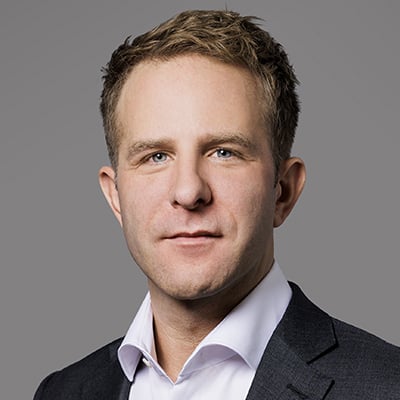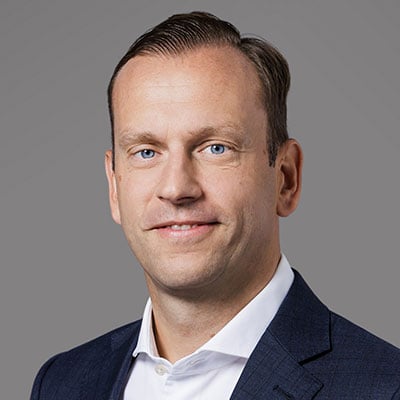Kirkland’s Frankfurt HQ Isn’t Just Another Satellite Office—It’s a Strategy
Ben Leyendecker and Tobias Larisch discussed Kirkland's German presence and the impact of its Frankfurt office in this article for Law.com International.
When Kirkland launched its Frankfurt office a year ago and hired M&A partner Tobias Larisch from Latham & Watkins, eyebrows were raised. The legal market was rife with speculation about how Kirkland would leverage its foothold in Germany’s financial capital.
A year on, the picture is coming into sharp focus: rather than build slowly, Kirkland’s five-partner Frankfurt team has turned the outpost into a high-impact platform—drawing on the strengths of its existing 18-partner Munich office to make a strong play in one of Europe’s most competitive legal arenas.
Kirkland is treating Frankfurt as a seamless extension of its talent pool, reinforcing its position as a leading force in the market.
“One key pillar of our strategy is that we don’t have a Munich office and a Frankfurt office,” Munich partner Benjamin Leyendecker said. “We have office space in these two locations, but we have one German team and we pursue one strategy. And we are working on most important client accounts across both office locations.”
In July, the firm announced a European deal hat trick including a headline-grabbing €2.2 billion Chinese takeover of Germany’s largest electronics retailer Ceconomy. The twist? The deal is staffed with Munich associates working under Frankfurt partners. Triton’s December acquisition of Bosch’s security products involved partners from both German offices. More recently, Kirkland is advising on a bid for ProSiebenSat.1 tv network as well as the €2 billion sale of Kelvion.
“We are really pursuing a German strategy, and we’re doing this now from two office locations but we really are fully integrated and unified in our endeavours and that includes business development, staffing of client teams and training,” Leyendecker said.
Larisch also stressed the depth of the German offices' cooperation, “We source deals together and we allocate the deals together.”
Digging Into the German Strategy
Chicago-headquartered Kirkland reclaimed the top spot in Am Law 100 rankings in 2024, posting a record-breaking $8.8 billion in gross revenue and solidifying its position as the highest-earning law firm in the U.S. Average profits per equity partner shot up last year by 16% to more than $9 million, even as the firm’s total equity partner count rose by 6.3% to 573.
So where do Frankfurt and Munich fit into the big picture? Kirkland Germany has three M&A practice areas known as “buckets”.
“We have the classic buyout work for PE funds. A second bucket is energy and infrastructure—a practice that we’re now building out. The third area is the strategic M&A piece, working for strategic clients,” Larisch said.
A private equity partner at a competing Frankfurt firm suggested that, given Kirkland’s more established presence in Munich, network projects and international deals assigned from abroad would likely be prioritised in Munich, "So they [Frankfurt] may have fewer projects."
Not so, said Larisch.
“The support that we get from the global platform in pursuing our endeavors in Germany is just absolutely overwhelming,” Larisch said. “This is what sets us apart from others in the German market. We are not operating in a silo in Germany, but we’re delivering on the global Kirkland strategy... We can leverage the Kirkland platform and unlock the whole potential.”
According to one market source, this level of integrated, international cooperation is uncommon. A veteran of a Frankfurt law firm observed that, at worst, managing partners of international firms in Germany can act like “little dictators,” treating their offices as personal fiefdoms, while even in better cases, their connections with other international offices tend to be limited.
Kirkland’s Unique Leadership Model
While the German finance hub on the River Main has lost its lustre for some international firms grappling with talent wars, rising staff costs, and costly office space, it remains a prime location for America’s top-ranked powerhouses. Kirkland, in particular, is setting itself apart in several distinct ways.
Kirkland operates without appointed managing partners or even formal partner titles, allowing lawyers to focus on client work rather than manage practice groups, offices or countries. And focusing on large-cap private equity clients gives Kirkland the luxury of ignoring gloomy news about Germany’s economy or day-to-day updates on tariffs.
“We’re not really looking at macroeconomic trends and saying, ‘Now we need to do this or that’,” Larisch said. “What we’re doing is, we’re super close to our clients. We try to understand what they are thinking, what they are trying to do.”
Kirkland’s optimism about Germany’s economy is reflected in its swift rise in the M&A rankings, despite having only 62 lawyers in the country, according to ALM Compass data. The firm now ranks just behind market leaders Freshfields and Hengeler Mueller, which have significantly larger teams of 624 and 474 lawyers respectively in Germany—a success that Larisch and Leyendecker attribute to Kirkland’s targeted focus on restructuring large-cap private equity clients.
“Look what many large sponsors have pledged to invest in Germany—it's massive capital. The market is more relevant than ever, in my view,” Leyendecker said.
Tactics & Talent Wars
Though having multiple German offices is common for some international law firms, the polycentric strategy is new for Kirkland. Outside of the U.S., Kirkland usually maintains just one office per economic center—there’s no Kirkland in Lyon, France or Manchester, England—although it does have two offices in China.
Instead of viewing Frankfurt as a shrinking client market, Kirkland sees it as a talent pool for recruiting top legal talent.
“We need more excellent talent and Frankfurt gave us the opportunity to attract new talent from different areas in Germany. And we needed another ‘senior’ partner. And now comes the unique part, to do this together as a unified German offering,” Leyendecker said.
“Tobias, who can do private equity, brings infrastructure to the table plus transformation M&A for corporates, which we also could sell to the U.S. And we thought we could build the biggest private equity platform in Germany. And we top it up with infra. And we top it up with very strategic M&A to the extent it works like a big ‘take private’,” Leyendecker said.
Kirkland is also known for the long hours required to make partner, with one Frankfurt private equity partner noting its lawyers are nearly impossible to reach—unless you’re a client. But excellence rarely comes without sacrifice.


